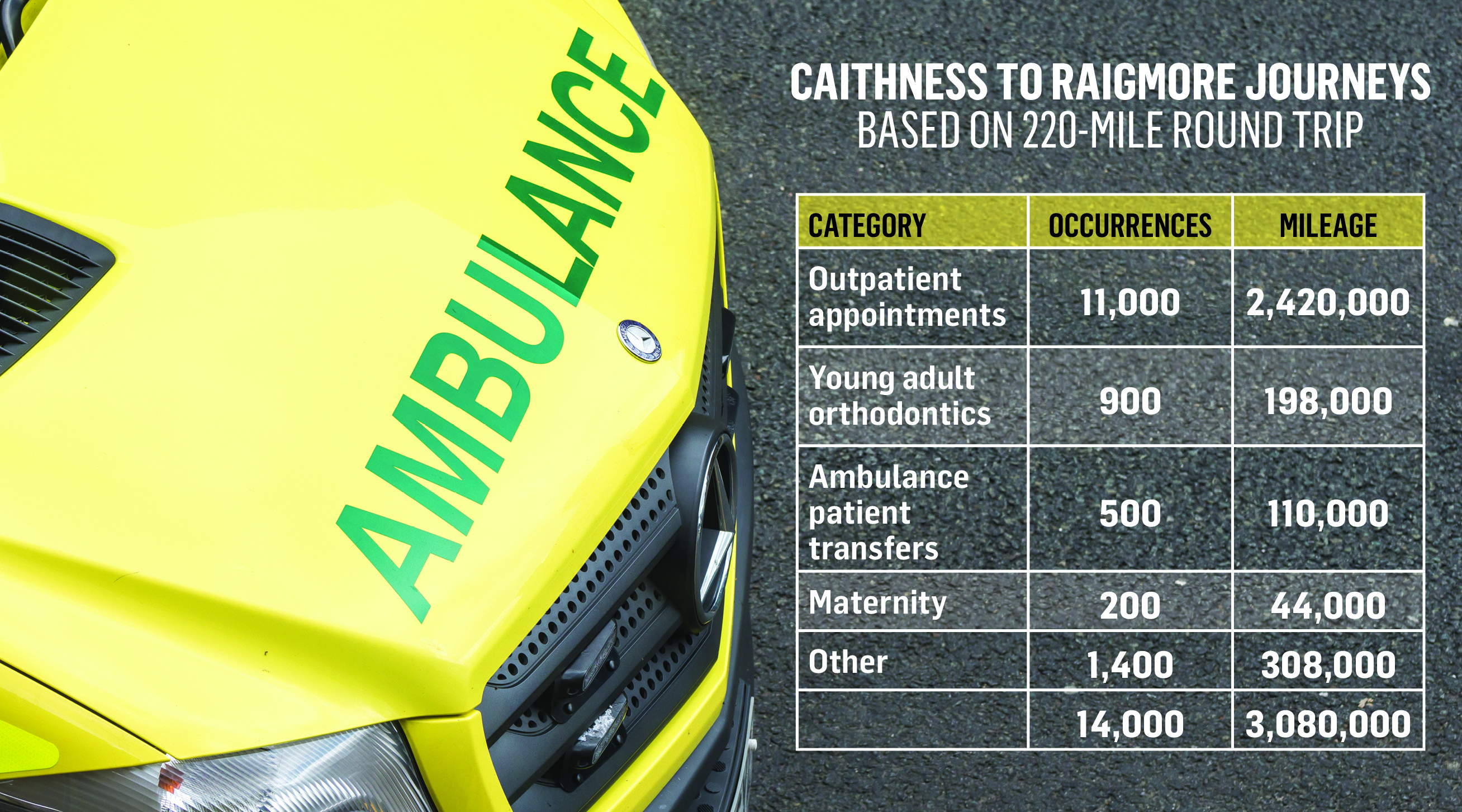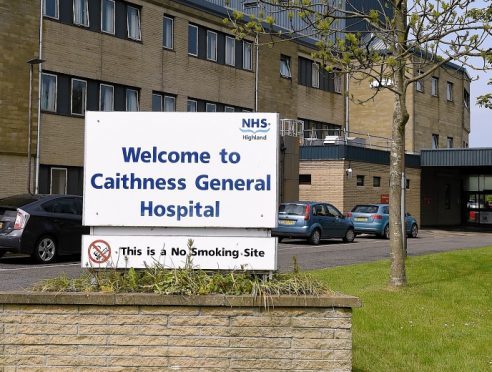Caithness patients are clocking up three million miles on the road each year to attend vital health appointments, according to campaigners.
The “disproportionately high” figure was last night described by a local politician as “unacceptable”.
Residents from the far north have been travelling to Inverness for thousands of appointments, leading to campaigners calling on the health board to consider the impacts on climate change and the region’s economy.
Caithness Health Action Team (Chat) claim a downgrading of services, including maternity, and the centralisation of many clinics was resulting in a “disproportionately high” number of journeys.

They say there are around 11,000 trips a year being made for outpatient appointments, another 500 patient transfers by ambulance, almost 900 young adults travelling for orthodontic treatment, and around 200 pregnant mums to give birth, with others travelling to attend other services away from Raigmore Hospital, including psychiatric appointments.
In terms of environmental impact, they add that there are also a high number of NHS staff having to travel in the opposite direction to Caithness.
Highlands and Islands MSP Edward Mountain blasted the revelation, saying: “Excessive travel for healthcare in this day and age is unacceptable.
>> Keep up to date with the latest news with The P&J newsletter
“I would urge NHS Highland to make as much use as possible of the new Near Me facilities and to ensure where possible consultants travel to Caithness to meet groups of patients, thus reducing individual travel times for those patients.”
The issue was raised with the health secretary Jeane Freeman during her visit to Inverness for the NHS Highland annual review.
A redesign of the provision of healthcare is currently being considered by the health authority.
But Chat chairman Bill Fernie said: “From a Caithness point of view we look at what has happened in relation to the centralisation of services to Raigmore.
“Many of the clinics we used to see at Caithness General have been moved to Inverness. Many more people are having to make many long trips now.
“We have calculated that to equate to something like three million miles and we wonder whether NHS Highland should consider ways to reduce travel given the impact on climate change.
“There are also economic consequences. People are using the time they are spending in Inverness to go shopping and are spending their money there instead of in Caithness.
“The effect is having an impact on the high streets on Wick and Thurso, potentially costing millions of pounds to the economy.”
NHS Highland chief executive Iain Stewart said the new leadership now in place at the health authority was “making care closer to home one of our intentions”.
He added: “Because of the land mass of the Highlands we want to make sure we look at our hospitals in a different way and move consultants around the area rather than patients travelling.”
He said new technology also meant clinicians were able to hold appointments via video link, rather than needing to travel to Raigmore.
Health secretary Jeane Freeman added that NHS Highland was using technology to deliver services closer to people, adding that a redesign of how care provision is delivered in Caithness was currently being considered.
